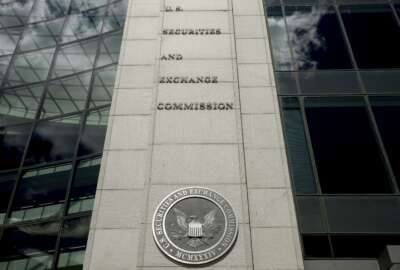IRS has recouped billions from whistleblower claims. Tipsters can wait a decade for their cut
The IRS Whistleblower Office has helped recover nearly $7 billion in taxes owed. Whistleblowers have been paid more than $1 billion in awards.
The IRS expects it will recover billions of dollars in taxes owed — just as soon as it sorts through a backlog of more than 30,000 whistleblower claims.
Not all claims, the agency expects, will have merit. A recent annual report finds the IRS Whistleblower Office received hundreds of “purely speculative” claims that don’t lead to any enforcement action.
Whistleblowers also submit credible leads that, in time, result in the IRS recovering substantial funds from tax cheats.
The IRS Whistleblower Office, since 2007, has helped the IRS recover nearly $7 billion in taxes owed — and whistleblowers whose tips initiated these cases have gotten a more than $1 billion cut of the money.
It’s no quick payday. The IRS states whistleblowers wait, on average, between 10 and 11 years before receiving a financial award for their disclosure to the agency, depending on the claim type.
Stephen Kohn, a whistleblower attorney at Kohn, Kohn & Colapinto, said the IRS needs to invest more resources and overcome “bureaucratic obstacles” to ensure credible tips keep coming into the agency.
“They have to look at the way they do their enforcement actions to ensure that the whistleblower who triggered it isn’t an afterthought,” Kohn said. “They have to be on their minds. The whistleblower gave them the case. The whistleblower risks their job, and it’s unfair to make them wait 11 years. That’s intolerable.”
The time it takes for the IRS to pay out whistleblower claims depends on legal challenges raised by the taxpayers who are the subject of an investigation, and whether they take their case to the IRS’ Independent Office of Appeals.
“The IRS pays awards from proceeds collected and as such, award payments cannot be made until the taxpayer has exhausted all appeal rights and the taxpayer no longer can file a claim for refund or otherwise seek to recover the proceeds from the government,” the report states.
Whistleblowers eligible to receive an award from the IRS generally receive about 15% of the revenue collected from their disclosure, but no more than 30% of what the IRS recovers.
Among the proposed reforms, Sen. Chuck Grassley (R-Iowa), co-chairman of the Senate Whistleblower Protection Caucus, introduced the IRS Whistleblower Improvement Act in March 2023.
The bill requires the IRS to pay interest on whistleblower awards if they’re not paid within one year of receipt of proceeds collected from whistleblower disclosures.
“The IRS is a strange agency — they’re totally money-driven. It’s all about collective revenue, counting the change. So this mechanism will force the top-level people to say, ‘OK we don’t want to pay that interest. Let’s get the awards out.’ It’ll be a financial incentive to treat whistleblowers fairly,” Kohn said.
The bill would also allow whistleblowers to remain anonymous in tax court proceedings.
The IRS is looking to further improve its Whistleblower Office, as part of the Strategic Operating Plan it released, detailing how it will use the billions of dollars in multi-year modernization funds it received in the Inflation Reduction Act.
“The IRS Whistleblower Office is an active participant in the IRS transformation effort,” IRS Whistleblower Office Director John Hinman wrote in the report.
Among its goals, Hinman said the IRS Whistleblower Office is “increasing our capacity to use high-value whistleblower information effectively, awarding whistleblowers fairly and as soon as possible, keeping whistleblowers informed of their claim’s status and the basis for IRS decisions on claims, and strengthening our collaboration with stakeholders of the IRS Whistleblower Program.”
“While we are pleased that the number of submissions increased in FY 2023, our fundamental goal is to increase the number of actionable submissions received and decrease submissions that are unlikely to result in an enforcement action,” he wrote.
The IRS, he added, receives hundreds of whistleblower claims that are “purely speculative in nature.”
“The Whistleblower Office uses significant resources responding to these claimants (often repeatedly), maintaining records, and engaging in litigation to defend an administrative enforcement decision not to pursue the information provided,” Hinman wrote. “The administrative burdens of these claims far outweigh any benefit of the information to the IRS.”
The IRS Whistleblower Office received 6,455 submissions in 2023, which generated nearly 17,000 claim numbers.
The IRS Whistleblower Office had nearly 50 full-time employees in 2023, “with decades of experience from a broad array of IRS compliance programs.”
Hinman wrote in the report that his office is “monitoring for the collection of several billion dollars in additional amounts assessed attributable to information submitted by whistleblowers.
“The continued success of the IRS Whistleblower Program is dependent on people who become aware of tax fraud and tax non-compliance and report that information to the IRS Whistleblower Office, and on the dedicated IRS workforce that supports this important program,” Hinman wrote.
The IRS paid nearly $89 million to 121 whistleblowers in fiscal 2023, from a total pot of $338 million collected through whistleblower tips — about 26% of what the IRS recovered. That’s more than double the nearly $38 million paid out to whistleblowers the previous year.
Common whistleblower allegations include tips of unreported or underreported income, overstated or false deductions, and failure to file a tax return or information return.
Copyright © 2025 Federal News Network. All rights reserved. This website is not intended for users located within the European Economic Area.
Jory Heckman is a reporter at Federal News Network covering U.S. Postal Service, IRS, big data and technology issues.
Follow @jheckmanWFED






